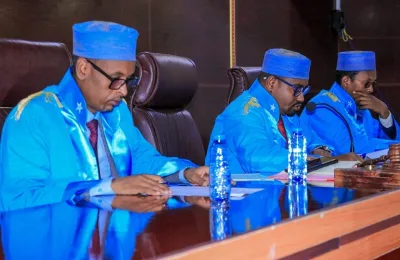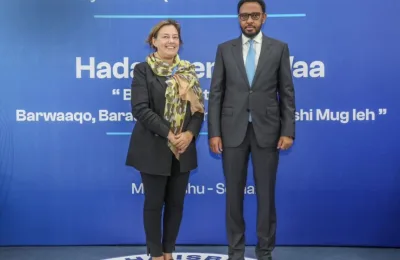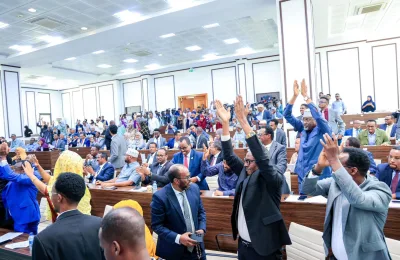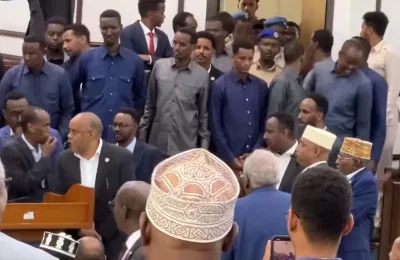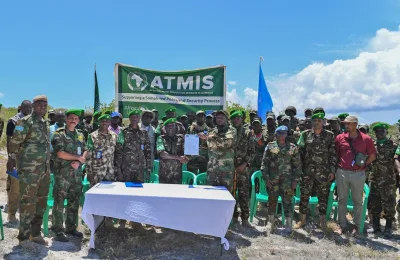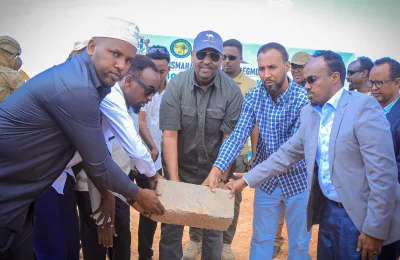Somalia has one of the highest rates of female genital mutilation (FGM) in Africa. Nearly 30…
 Somalia has one of the highest rates of female genital mutilation (FGM) in Africa.
Somalia has one of the highest rates of female genital mutilation (FGM) in Africa.
Nearly 30 African countries are currently fighting to reduce the numbers of girls subjected to FGM, many girls die during the procedure, while others face life threatening situation during childbirth. The procedure can also cause severe bleeding, problems with urination, infections and other scars which will last a life time.
FGM in Somalia is divided into two types, the first type is called (Firconi) which literally means (Pharaoh’s), the roots of this practice goes back to ancient Egypt. This is most extreme form, which includes the removal of all external genitalia and the stitching together of the two sides of the vulva.
The second type in Somalia it is called “Sunni-circumcision” which is widely practiced, this means partial removal of the female genitalia.
It is difficult to say when FGM was introduced into the Somali tradition and culture, but the fact that it has no basis in the religion of Islam might actually help the fight against this practice in Somalia. There have been many campaigns against this Un-Islamic tradition, now the numbers of girls who undergo this mutilation might go down, according to Ministry of Health in Somalia.
In many parts of the country there are different organizations working on the fight against this practice, girls who are victims and activists participate in awareness raising programs to stop FGM. Also religious leaders play an important role in this campaign.
Inherited Skills
I tried to find some of the women who are paid to do this practice, most of these women are old and have no other means of income. I met with one of these women named Fatima, aged 85.
Fatima says she stopped doing female circumcisions a while ago, it was the skill that she inherited from her mother.
“Mom … I quit the job, May Allah forgive me, I know that I harmed thousands of girls, I been doing this work for more than 40 years, I inherited this profession, but later I have realized that it was bad…. ” she said in a gentle voice.
Unforgettable Pain
Saadia, one of the girls circumcised by Fatima told me that the mutilation caused her much pain and sorrow, which is unforgettable.
“… The circumcision was done when I was 8 years old, it was a dark day for me and I didn’t get any medical help, they cutoff my hair as part of this old and evil tradition, over a period of 21 days I couldn’t even walk straight without the help of a walking-stick…. ” says Saadia.
“…When I become an adult, I had many health issues, I was once admitted to the hospital, my experience of pain did not end there, but when I got married and I was not happy because of my condition. My husband was not so understanding either and I once again become a victim in my own home…” said Saadia how still remembers her days of sorrow.
Saadia still recounts when she gave birth to her first child. She says “…That day I almost died. Allah saved me and I still blame those who did this to me…” adding that she is very committed that her daughters will not experience the same thing, she is now volunteering for awareness raising programs for young girls.
In 2014, a training program was started in the city of Bosaso on the red-sea coast of Somalia. This program was for the women who are still practicing FGM as a profession. It was a cooperative program of the Ministry of Women and Family Affairs of Puntland State and UNHCR, the program was designed to help the women to develop other skills.
But still most vulnerable areas are people living in rural areas and IDPs (Internal Displaced People) camps.
The new law against FGM
In 2015, the Ministry of Women and human rights of Somalia announced it will criminalize the practice of FGM.
“It is time to eliminate the practice of female genital mutilation and to recognize it as serious crime against humanity…” says Zahra Mohamed Ali, the Minister of Women and Human Rights.
Back in Bosaso city, Saadia says she is still looking forward to the implementation of this new law and calls on the ministry of Justice to start prosecuting those who are still practicing FGM to protect the young girls who are not yet effected by this backward tradition.
Abdirahman Abdi Mohamed
Horseed Media
Bossaso, Somalia


